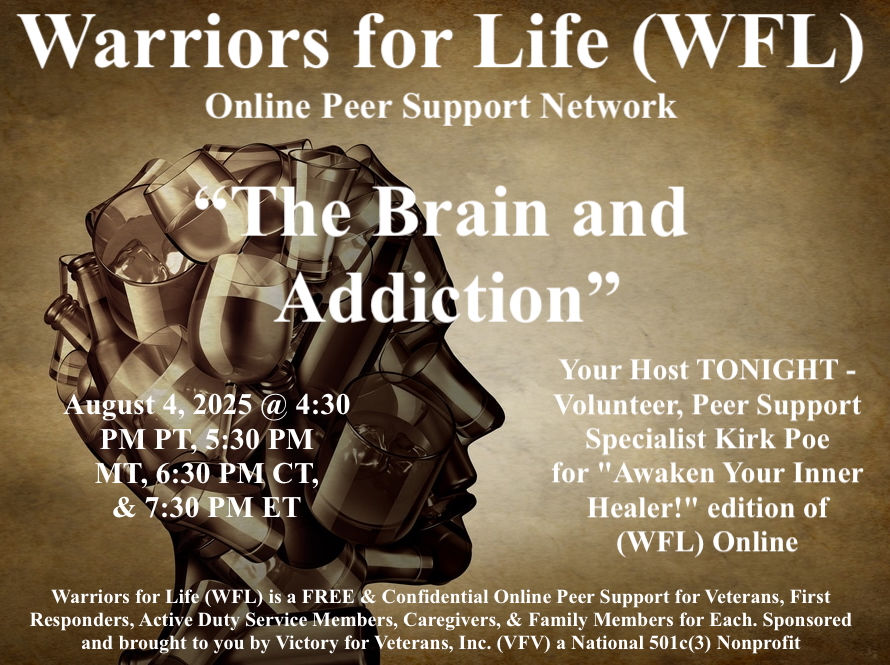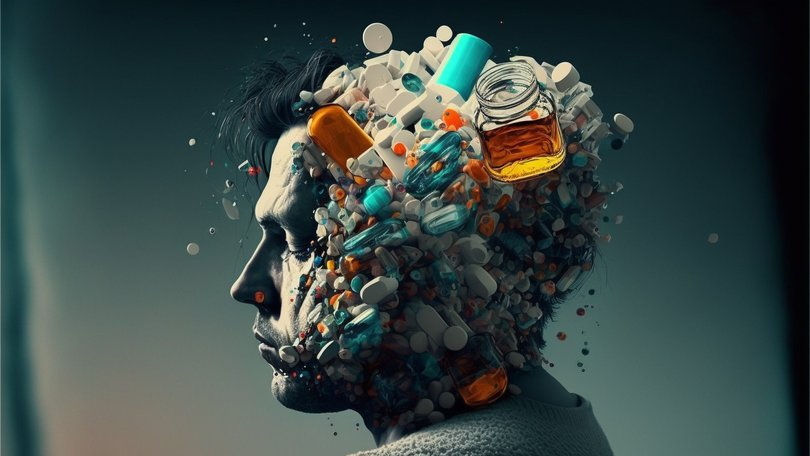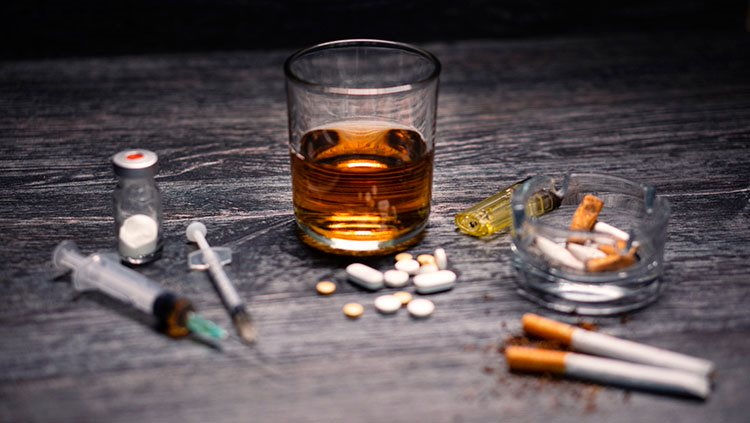Join Kirk and Friends TONIGHT for "The Brain and Addiction" with Warriors for Life (WFL)
- Col (Ret) Mikel Burroughs

- Aug 3, 2025
- 2 min read
Updated: Aug 11, 2025
Come join Volunteer, Peer Support Specialist Kirk Poe for "Awaken Your Inner Healer!" edition of Warriors for Life (WFL) Online, sponsored and presented by Victory for Veterans, Inc. (VFV).
We are asking everyone to share who we are and what support Victory for Veterans provides via WFL. If you know someone who is a veteran, first responder or a family member/caregiver, please ask them to join us for at least one meeting so they can learn more about what we do and how they can share their wisdom with others who may be able to learn from them.

TONIGHT's Topic: "The Brain and Addiction"

Join Kirk and Friends TONIGHT for a discussion about "The Brain and Addiction" Everyone is welcome!

KEY POINTS
Brain systems detecting, suppressing, and inhibiting drug memories/urges have been discovered.
Key brain mechanisms suggest the possibility of addicted people choosing to inhibit unwanted thoughts.
Managing cravings and relapse prevention aren't about willpower alone. Saying no is a learnable skill.
The brain is a master controller, organized into large-scale neural networks that directly affect whether people with addictions break free or surrender. Research has identified a key site, the action mode network (AMN), offering potential current and future ideas for more readily resolving addictions. This network supports goal-directed behavior, including making decisions, carrying out actions, and adjusting behavior.
Addiction and the Brain

In a 2025 paper in Proceedings of the National Academy of Sciences, Badke D’Andrea and colleagues used high-resolution fMRI scans to identify four subnetworks within the AMN, including decision, action, feedback, and bodily self. The AMN–Decision subnetwork weighs options and chooses between competing goals, while the AMN–Action subnetwork carries out chosen actions. AMN–Feedback monitors results of actions and adjusts behavior. Last, AMN–Bodily Self contributes a sense of self. This model helps us appreciate howthe brain exerts self-control (or doesn’t), especially important when a person needs to resist powerful conditioned impulses like drug cravings.
Another paper, published in 2025 in Nature Reviews Neuroscience explains how the brain stops intrusive thoughts, such as drug cravings or invasive unwanted memories. This process involves interconnected circuits. The brain's right dorsolateral and ventrolateral prefrontal cortex (PFC) are key to inhibiting actions and thoughts. In addition, a frontotemporal pathway linking the PFC with the hippocampus helps suppress unwanted memories/mental images—especially those triggering cravings. The PFC detects when an intrusive thought appears and signals the hippocampus and other structures to suppress it. When this system is impaired—by drug use or mental illness—problematic impulses make it much harder to control behavior. Addictive cravings can also hijack memory and motivation circuits, increasing relapse risks.
How Addiction Affects the Brain

Warriors for Life (WFL) Online "Awaken Your Inner Healer!" edition presented by Victory for Veterans, Inc. (VFV) - Monday (TONIGHT), August 4, 2025 @ 4:30 PM PT, 5:30 PM MT, 6:30 PM CT, & 7:30 PM ET
Join Zoom Meeting: https://us06web.zoom.us/j/86121340012
Thank you,
Kirk Poe, Certified Peer Support Specialist, Reiki Master, Certified Body/Emotion/Belief Code Practitioner, & Volunteer Facilitator, Victory for Veterans, Inc. (VFV)




Comments